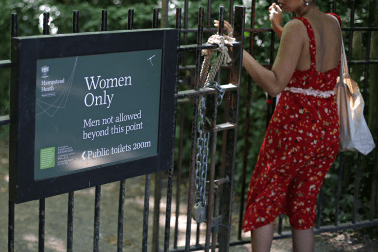‘Gliff’ is a word which can mean ‘a short moment’, ‘a wallop’, and ‘a post-ejaculatory sex act’; to ‘dispel snow’, ‘to frighten’, and to ‘escape something quickly’. It’s ‘really excitingly polysemous’, says one of Ali Smith’s characters. It’s certainly an apt title for a book which can’t seem to define itself.
At its centre are two children,...

Disagree with half of it, enjoy reading all of it
TRY A MONTH FREE
Our magazine articles are for subscribers only. Try a month of Britain’s best writing, absolutely free.
Already a subscriber? Log in







Comments
Join the debate, free for a month
Be part of the conversation with other Spectator readers by getting your first month free.
UNLOCK ACCESS Try a month freeAlready a subscriber? Log in